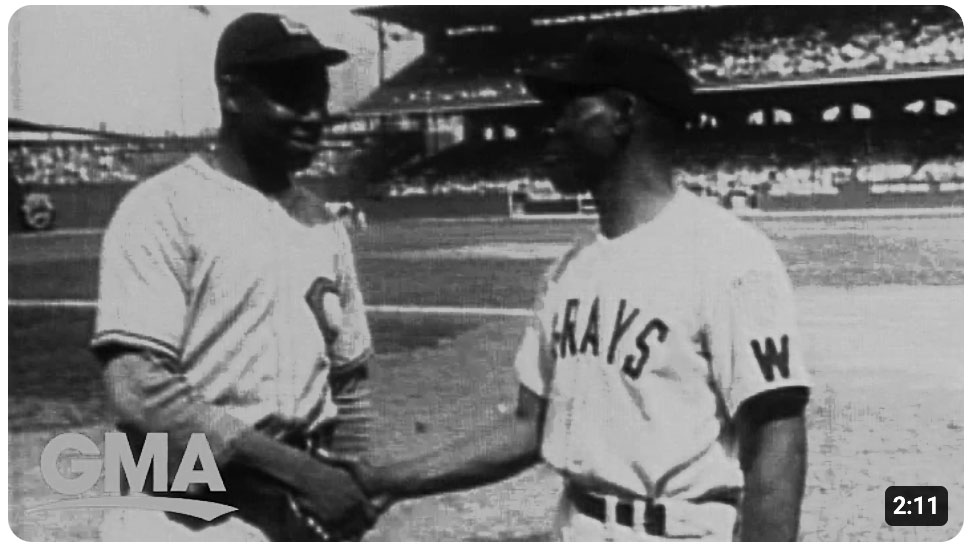
Major League Baseball (MLB) has integrated the statistics of former Negro Leagues players into its historical records, resulting in legendary leaders like Babe Ruth and Ty Cobb being replaced by players who were excluded from MLB fields due to segregation, according to a report released by CNN today.
Josh Gibson, one of the greatest sluggers in Negro Leagues history, is now recognized as MLB’s all-time career leader in batting average at .372, surpassing Ty Cobb’s .367. Gibson also overtakes Babe Ruth in career slugging percentage according to the MLB website.
“We are proud that the official historical record now includes the players of the Negro Leagues,” said MLB commissioner Rob Manfred. “This initiative ensures future generations of fans have access to the statistics and milestones of all those who made the Negro Leagues possible. Their accomplishments on the field will be a gateway to broader learning about this triumph in American history and the path that led to Jackie Robinson’s 1947 Dodger debut.”
Josh Gibson, inducted into the National Baseball Hall of Fame in 1972, is acknowledged by his great-grandson Sean Gibson, who told ABC’s Good Morning America, “We always considered Josh Gibson a major leaguer anyway. It’s just now that he is recognized in the Major League Baseball stats.”
Gibson’s Hall of Fame plaque states he “hit almost 800 home runs in league and independent baseball” during his 17-year career, although most of these homers came in exhibitions rather than league-sanctioned games.
Negro League Museum president Bob Kendrick remarked to Yahoo Sports, “It’s a big day. This result stems from the dedication of incredible historians and researchers who achieved what many thought impossible.”
Over 2,300 Negro Leagues players from 1920-1948, including Hall of Famer Willie Mays, have been added to the MLB database. This update also adjusts the career statistics of other Hall of Famers like Jackie Robinson, Satchel Paige, and Minnie Miñoso to reflect their Negro Leagues accomplishments. Robinson’s career hits increase from 1,518 to 1,567, Paige’s career wins from 28 to 125, and Miñoso’s hits surpass the 2,000 mark to 2,113.
This inclusion follows MLB’s December 2020 recognition of the Negro Leagues as equivalent to the major leagues, which required time to review how this would impact MLB records due to the need to differentiate between league-sanctioned games and exhibitions.
“Shortened Negro League schedules, interspersed with revenue-raising exhibition games, were born of MLB’s exclusionary practices,” said MLB historian John Thorn. “To deny the best Black players of the era their rightful place among all-time leaders would be a double penalty.”
Committee member Larry Lester added, “Stories, folklore, and embellished truths have long been part of the Negro Leagues narrative. Now our dialogues can be quantified and qualified to support the authentic greatness of these athletes. Every fan should welcome this statistical restitution towards social reparation.”
In 2020, MLB acknowledged it was “correcting a longtime oversight” by elevating the status of the Negro Leagues, which included seven leagues and about 3,400 Black and Latino players from 1920 to 1948.
Scott Simkus, one of the researchers behind the Seamheads Negro Leagues Database, said, “Many people have heard of Martin Dihigo, Josh Gibson, and Satchel Paige. But what about the thousands of other men who played in the Negro Leagues from 1920 to 1948? They’re finally being recognized as major league caliber ballplayers.”
Larry Lester, co-founder of the Negro Leagues Baseball Museum in Kansas City, commented on the delayed recognition, “It’s sad this great history has been kept from them.” Bob Kendrick added that the recognition “serves as historical validation for those who had been shunned from the Major Leagues and had the foresight and courage to create their own league that helped change the game and our country, too.”

